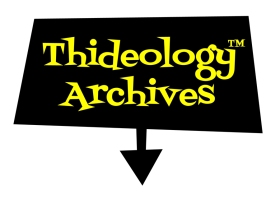Should Christians Celebrate Christmas?
November 24, 2018 Leave a comment
Note: This post originally ran on December 2, 2013.
There is a trend among some Christians to dismiss Christmas — some even treat Christmas with contempt. This is done for a variety of reasons:
- December 25 was chosen by the Roman Catholic Church to coincide with a pagan festival.
- We don’t really know the date of Jesus’ birth, so it is impossible to celebrate it on the actual date.
- The Christmas tree has its origin in a pagan festival.
- The Holiday is a celebration of materialism and commercialism.
- There is no biblical imperative to celebrate or commemorate Christ’s birth.
I get that.
However — if you will allow me to mix a cliché and a pun — let’s not throw the baby out with the bath water. More than 100 years ago Charles Haddon Spurgeon, the prince of preachers himself, was well aware of the list of objections cited above. Yet, he did not shy away from celebrating the birth of Christ at this time of year. Why not? I’ll let him speak for himself…
We have no superstitious regard for times and seasons. Certainly we do not believe in the present ecclesiastical arrangement called Christmas… because we find no Scriptural warrant whatever for observing any day as the birthday of the Savior; and consequently, its observance is a superstition, because not of divine authority.
Superstition has fixed most positively the day of our Savior’s birth, although there is no possibility of discovering when it occurred. … It was not till the middle of the third century that any part of the church celebrated the nativity of our Lord; and it was not till very long after the Western church had set the example, that the Eastern adopted it. … Probably the fact is that the “holy” days were arranged to fit in with the heathen festivals. We venture to assert, that if there be any day in the year, of which we may be pretty sure that it was not the day on which the Savior was born, it is the twenty-fifth of December.
Nevertheless since, the current of men’s thoughts is led this way just now, and I see no evil in the current itself, I shall launch the bark of our discourse upon that stream, and make use of the fact, which I shall neither justify nor condemn, by endeavoring to lead your thoughts in the same direction.
Since it is lawful, and even laudable, to meditate upon the incarnation of the Lord upon any day in the year, it cannot be in the power of other men’s superstitions to render such a meditation improper for today. Regarding not the day, let us, nevertheless, give God thanks for the gift of His dear Son. — Charles Haddon Spurgeon, from his sermon delivered on December 24, 1871
Christ’s birth is a defining moment in history. The long-promised Messiah has come. The theological implications of this event are unfathomable. This is the fulfillment of numerous prophecies. The virgin birth tells us so much — it is how Jesus was both God and man. It is how He entered into this world uncorrupted by sin. It is the reason He was able to be the perfect sacrifice, the substitute who endured God’s wrath for us. His birth and his death are inseparable, for the Christ child was born to die. And, the fact that it is recorded is Scripture indicates it is something on which we should meditate.
 If the account of Christ’s birth has become corrupted by the efforts of sinful man then take the opportunity of this holiday to help un-corrupt it. Remember, Christmas isn’t the only thing man has ruined. Man has ruined everything. Our sinfulness is the reason the entire world groans under a curse. Left to ourselves we have no ability to fix it and we have no hope.
If the account of Christ’s birth has become corrupted by the efforts of sinful man then take the opportunity of this holiday to help un-corrupt it. Remember, Christmas isn’t the only thing man has ruined. Man has ruined everything. Our sinfulness is the reason the entire world groans under a curse. Left to ourselves we have no ability to fix it and we have no hope.
THIS is why Christ came. He is THE hero in the greatest narrative ever told. And, even though we don’t know exactly when He was born, His birth is worth celebrating every single day of the year…
…even on December 25.






